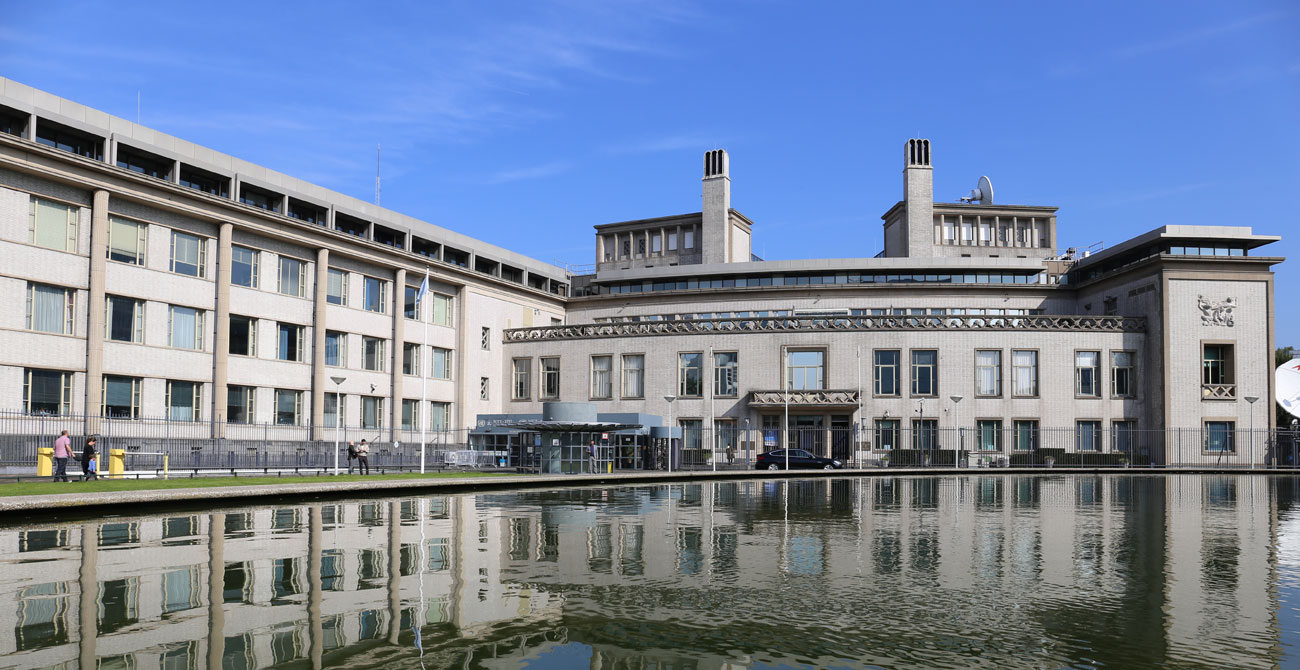


The court confirmed eight indictments against 46 individuals and issued arrest warrants. While the war in the former Yugoslavia was still raging, the ICTY prosecutors showed that an international court was viable. This was followed on 13 February 1995 by two indictments comprising 21 individuals which were issued against a group of 21 Bosnian-Serbs charged with committing atrocities against Muslim and Croat civilian prisoners. In 1994 the first indictment was issued against the Bosnian-Serb concentration camp commander Dragan Nikolić. By November 1994, first indictments were presented and confirmed, and in 1995, the staff numbered over 200 persons from all over the world. The ICTY hired many staff members and by July 1994, the Office of the Prosecutor had sufficient staff to begin field investigations. ġ994–1995: The ICTY established its offices within the Aegon Insurance Building in The Hague (which was, at the time, still partially in use by Aegon) and detention facilities in Scheveningen in The Hague (the Netherlands). However, after the first year, the first ICTY judges had drafted and adopted all the rules for court proceedings. As the ICTY was a part of the United Nations and was the first international court for criminal justice, the development of a juridical infrastructure was considered quite a challenge. Together, these rules established a legal aid system for the Tribunal. It established the legal framework for its operations by adopting the rules of procedure and evidence, as well as its rules of detention and directive for the assignment of defense counsel. ġ993–1994: In the first year of its existence, the Tribunal laid foundations for its existence as a judicial organ. 17 states had signed an agreement with the ICTY to carry out custodial sentences. In 1993, the ICTY built its internal infrastructure. The maximum sentence the ICTY could impose for these crimes was life imprisonment. Violations of the laws or customs of war.Grave breaches of the Geneva Conventions.It was to have jurisdiction over four clusters of crimes committed on the territory of the former SFR Yugoslavia since 1991:

Resolution 827 of approved the S/25704 report of the Secretary-General and adopted the Statute of the International Tribunal annexed to it, formally creating the ICTY. The Court was originally proposed by German Foreign Minister Klaus Kinkel. taking into account suggestions put forward in this regard by Member States". a report on all aspects of this matter, including specific proposals and where appropriate options. United Nations Security Council Resolution 808 of 22 February 1993 decided that "an international tribunal shall be established for the prosecution of persons responsible for serious violations of international humanitarian law committed in the territory of the former Yugoslavia since 1991", and called on the Secretary-General to "submit for consideration by the Council. Report S/25704 of the UN Secretary-General, including the proposed Statute of the International Tribunal, approved by UN Security Council Resolution 827 Residual functions of the ICTY, including oversight of sentences and consideration of any appeal proceedings initiated since 1 July 2013, are under the jurisdiction of a successor body, the International Residual Mechanism for Criminal Tribunals (IRMCT). The final judgment was issued on 29 November 2017 and the institution formally ceased to exist on 31 December 2017. The final fugitive, Goran Hadžić, was arrested on 20 July 2011. Various countries signed agreements with the UN to carry out custodial sentences.Ī total of 161 persons were indicted the final indictments were issued in December 2004, the last of which were confirmed and unsealed in the spring of 2005. The maximum sentence that it could impose was life imprisonment. It had jurisdiction over four clusters of crimes committed on the territory of the former Yugoslavia since 1991: grave breaches of the Geneva Conventions, violations of the laws or customs of war, genocide, and crimes against humanity. It was established by Resolution 827 of the United Nations Security Council, which was passed on. The tribunal was an ad hoc court located in The Hague, Netherlands. The International Criminal Tribunal for the former Yugoslavia ( ICTY) was a body of the United Nations that was established to prosecute the war crimes that had been committed during the Yugoslav Wars and to try their perpetrators.


 0 kommentar(er)
0 kommentar(er)
